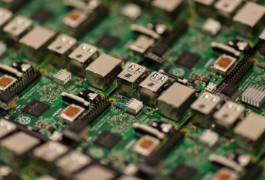Bachelor of Science In Electrical Engineering (Bachelors)
UC Santa Cruz
Santa Cruz, CA
The electrical engineering curriculum provides a balance of engineering science and design and allows students to specialize in both the traditional topics and the latest subjects in electrical engineering. Students may concentrate their electives in the areas of electronics and optics or communications, signals, systems, and controls. The major is designed to attract motivated students who, upon graduation, will be sought by employers in the high-tech industry. The electrical engineering program is accredited by the Engineering Accreditation Commission of ABET.
The electrical engineering B.S. program is accredited by the Engineering Accreditation Commission of ABET, https://www.abet.org.
Students can pursue either of two concentrations, Electronics/Optics or Communications, Signals and Systems.
Kết quả học tập của chương trình
Program Educational Objectives:
Program Educational Objectives (PEOs) are based on the needs of the Electrical Engineering program constituents. They describe what graduates are expected to attain within a few years after graduation.
The PEOs for the Electrical Engineering program at the University of California, Santa Cruz, are as follows:
✔ Advanced Learning and Professional Development: Achieve a high quality, professional approach to engineering through a desire for advanced education, lifelong learning and participation in the professional engineering community.
✔ Adaptation to Technological Change: Enjoy a successful professional career in a world with rapid technological change by having a sound foundation in the fundamental electrical engineering theory, design and basic science upon which future technology will be based.
✔ Skills for Initial and Continued Employment Success: Demonstrate job-relevant electrical engineering skills through theoretical and practical competence in hardware, software, and programming aspects of electrical engineering, as well as independence in thought and action.
✔ Leadership, Teamwork and Entrepreneurial Skills: Achieve a high level of individual creativity for personal achievement as well as the interpersonal, communications and responsibility skills for creating an effective team project environment, including an ability to apply engineering competence in both research and product oriented settings.
✔ Ethics and Societal Issues: Practice a high standard of professional ethics and have a positive impact on the social and environmental aspects of engineering design and implementation.
Student Outcomes:
Upon graduation, students completing the Electrical Engineering B.S. program shall have an ability to:
✔ Identify, formulate, and solve complex engineering problems by applying principles of engineering, science, and mathematics;
✔ Apply engineering design to produce solutions that meet specified needs with consideration of public health, safety, and welfare, as well as global, cultural, social, environmental, and economic factors;
✔ Communicate effectively with a range of audiences;












